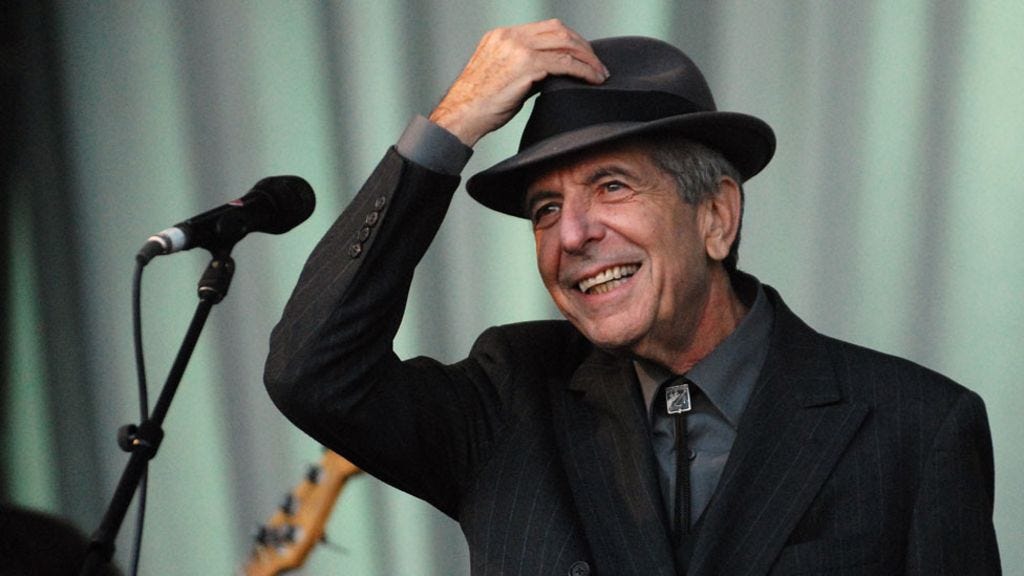
When Leonard Cohen passed away three and half years ago, we lost an artist whose works have had an enormous impact on poetry, literature, and songwriting.
Cohen achieved initial success as a poet, winning the Chester MacNaghten Literary Competition for the poems “Sparrows” and “Thoughts of a Landsman” while still a student at McGill University in the early 50’s. His first book of poetry, Let Us Compare Mythologies (1956), was published right after he graduated. Well into the 1960’s, and after going into semi-seclusion by moving to the Greek island, Hydra, Cohen continued to publish books of poetry and fiction. However, in 1966, at the age of 33, he decided to become a songwriter. For a man who sought large spans of seclusion throughout his life, he was an excellent interviewee — witty, charming, and well-spoken. Here’s a great CBC interview with him in 1966.
What is remarkable about this career change, however, is that he also decided, however reluctantly, to sing his songs. This is a remarkable decision for someone who had never defined themselves as a performing musician. How lucky the world is for this brave leaf of faith.
His first album, The Songs of Leonard Cohen, was released in 1967 and became a cult favorite in the U.S. and UK.
In 1971, three songs from his first album were featured in Robert Altman’s classic film, McCabe and Mrs. Miller, helping to introduce Cohen’s music to an even wider audience.
For the rest of the 1970’s Cohen toured and released albums. In 1978, he returned to poetry with the publication of, Death of a Lady’s Man.
A very interesting album from 1979, Recent Songs, is a departure in the musical sounds that Cohen’s albums had had in the past. One begins to hear the musical influences that would define the rest of his career.
In listening to many albums from the 1980’s, it is difficult to imagine just how new and innovative digital sounds were to artists from all genres. Leonard Cohen’s song, Hallelujah, is from his 1984 album, Various Positions. It has become one of the most performed songs in modern music history, but it is worth hearing the original in the context of the complete album.
Throughout the first couple of decades of his singing career, Leonard Cohen was an uncomfortable performer and freely admitted that it took at least a bottle of (very good) wine to get him through a concert. However, here is a great concert from Austin City Limits in 1989, however sober he may have been.
For a good chunk of the 1990’s Cohen went into seclusion again, this time entering a Zen monastery on Mt. Baldy outside of Los Angeles. It is interesting to hear in his words, from a 2001 interview, what this experience revealed.
Whatever this experience revealed, his concert performances after this seclusion and until the end of his performing career achieved an ease and level of excellence that had never quite been achieved prior. It is at this point that Cohen’s music and its significance started to sink into the public’s conscience. Here are a few songs from his concert in London from 2008 that are worth watching every second.
One of my favorite interviews from Terry Gross’s NPR radio show, Fresh Air, was with Leonard Cohen in 2006, when he released his book of poetry, Book of Longing.
In 2016, he gave an incredibly generous interview to David Remnick from The New Yorker. It’s particularly touching considering that he was in enormous pain from multiple stress fractures in his back and he was being ravaged by cancer. It turned to be his last interview.
In 2017, a memorial tribute concert was performed in Cohen’s birthplace, Montreal. With artists as varied as Sting, Feist, Elvis Costello, and k.d. Lang, singing Cohen’s songs, the impact his songs is truly felt.
